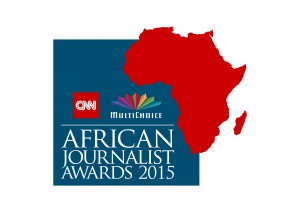A while ago, while pondering the changing landscapes of contemporary media, I suggested that many things have irrevocably changed enough to warrant a different attitude, especially by prize-giving bodies, towards alternative media and publishing outlets. I must have said it in many other different ways afterwards. It was true then as it is now, that the democratisation of the media which has given rise to many new voices and expressions that would otherwise remain silent has not received much of its due respect from the traditional gatekeepers.
A number of times on this blog and elsewhere, I’ve made a case for blogging as “the future, or at least the way to it.” I believe this to be true, although the Booker, The Nobel, among other literary prizes have however not yet taken any relevant cues from this reality enough to change the traditional nature of their annual winner selection. Rational people expect the changes to be slow. However, great, brilliant and beautiful work is still being done everyday on web platforms by writers who either can’t find publishers, or don’t think that the traditional route of print publishing is effective in reaching their audiences. The earlier we begin to recognise them in spite of their refusal or inability to comply with traditional methods, the better. The world is now a different place.
 I want to say though – some of you probably know where I’m going with this – that I’ve received recently some encouraging validation for that aspiration. This blog has been nominated for the CNN/Multichoice African Journalist of the Year 2015 for a travel report I did for this blog a while ago. (I’ll tell you which one it is, shortly). And for that, I’ve been invited for an all-expense paid to Nairobi, Kenya – this October – to writing workshops, networking, and the gala night to hear the name of the winners. (I also found it incredibly gratifying to be returning to Kenya exactly ten years since my first visit in March 2005. Yay for travel, nyama choma, and meeting old friends. Habari yenu, Kenya!).
I want to say though – some of you probably know where I’m going with this – that I’ve received recently some encouraging validation for that aspiration. This blog has been nominated for the CNN/Multichoice African Journalist of the Year 2015 for a travel report I did for this blog a while ago. (I’ll tell you which one it is, shortly). And for that, I’ve been invited for an all-expense paid to Nairobi, Kenya – this October – to writing workshops, networking, and the gala night to hear the name of the winners. (I also found it incredibly gratifying to be returning to Kenya exactly ten years since my first visit in March 2005. Yay for travel, nyama choma, and meeting old friends. Habari yenu, Kenya!).
More enchanting for me, however, is a possibility for the future. We’ve seen it with Uber successfully subverting the idea of organised traditional taxi service, and of AirB&B helping people turn their home and apartments into “hotels” without having to get a licence or own properties like the Hilton or Trump. It has happened with radio vs podcasts, and with music companies vs Pandora, Spotify, etc, and with e-Books helping writers reach their audiences faster and more affordably. Everywhere we turn, new ways are challenging the old and forcing us to negotiate the world in a lot of different, less cumbersome ways. I see blogging in the same way: a platform that is accessible to all, can be set up at no cost, and yet can be incredibly powerful in transmitting and interpreting the human experience across boundaries like never before. This has certainly been my experience here and it’s hard not to be excited for the attention of traditional media giants, CNN and Multichoice, to this new reality.
As for you, dear readers, whose constant presence in my analytics make sure that I keep coming back here, it’s all your fault! So, thank you! Now, let’s go have some East African fun.
_____
References
Blog, Writing, and Real Life (October, 2009)
A Case for Blogging (June, 2010)
Book, Blook, Bloog, Blog… (October, 2011)
A Little More than Fun (December 2012)
Blogging and Other Botherations In Saraba Issue 7b. Page 10 (December, 2012)
An e-Book is a Book (September 2013)
One Comment to Blogging in Klieg Lights so far. (RSS Feeds for comments in this post)